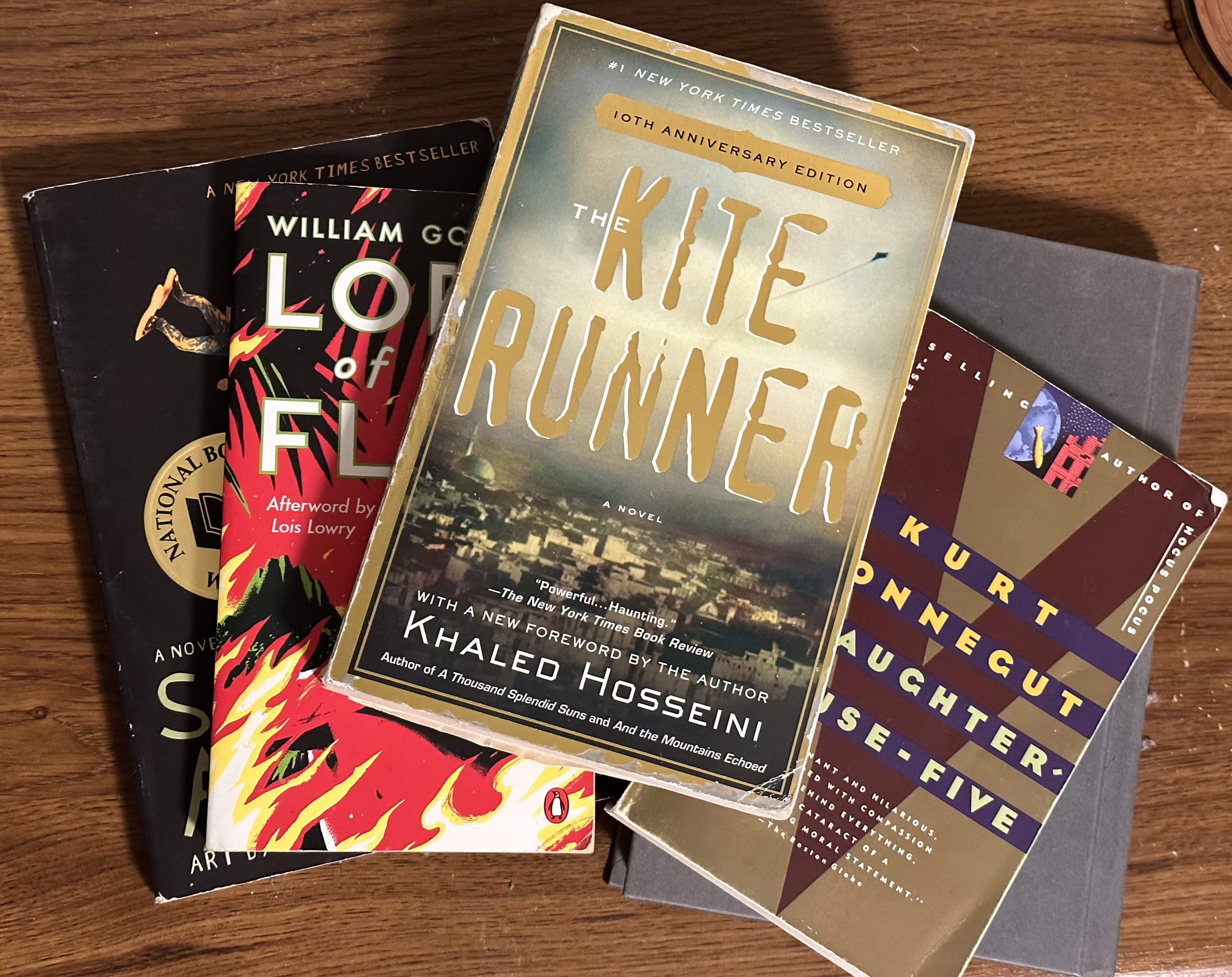Source: Shealyn Scott
Out of the 228 books I read in high school, a quarter of them are now on lists of banned books nationwide. Somehow, the same stories I was assigned to analyze mere years ago are now denounced as “inappropriate” or even “harmful.”
Every year, it seems that more and more books are haphazardly banned from curriculum and school libraries for no logical reason.
In truth, book bans accomplish nothing aside from silencing authors and sheltering the minds of young readers. For a practice that supporters claim “protects” students from improper subject matter, book banning causes its own serious issues.
The act of banning books puts power into the wrong hands. Rather than letting professionals decide what is suitable for reading, anyone can challenge a book at a local level and potentially get it banned. I find it ridiculous that people with zero authority on literature can so severely impact an author’s reputation and livelihood.
Book bans dictate which narrative voices are worthy of being heard. Instead of celebrating diverse authors and unique storylines, book bans oppress anything that even tiptoes over the line of controversy.
It’s no secret that “controversy” usually boils down to representations of minority groups who already face oppression outside of fiction. According to the American Library Association, 2022 saw the proposed banning of books “by or about members of the LGBTQIA+ community or by and about Black people, Indigenous people, and people of color” into the thousands.
Reasons provided by censors included alleged sexual explicitness, discussions of racism, and the sheer inclusion of queer characters/storylines.
As an English major, I think literature is one of the most valuable gateways we have into the lives of other people. We should embrace the unfamiliarity of diverse stories and use them to educate ourselves about situations we would otherwise never hear about.
I will never know what it’s like to be a little boy in Afghanistan, but Khaled Hosseini’s “The Kite Runner” paints a vivid, honest picture that helps me better understand his characters. In turn, it might make readers more empathetic to Afghan-Americans in general.
Diverse literature paves the way for open-mindedness, empathy, and respectful discourse. Shortsighted parents and patrons undercut those merits by campaigning for book bans.
Unfortunately, literary censorship is nothing new. Book banning has been around for decades, and so have the illogical reasons for challenging novels in the first place. I often think back to “1984” by George Orwell, the novel that was banned in the USA because of its pro-communist themes and banned in the USSR for its anti-communist themes.
More concerning than the idea of a book being banned for contradictory reasons is the growing frequency of this ideology. I may be personally invested in this topic because of my academic career, but book banning is a problem that should be on everybody’s radar.
Literary censorship has alarming implications for modern pedagogy. If teachers can’t make the ultimate decision on which books to include in their curriculum, where does this breach of authority end?
Furthermore, it should concern readers everywhere to know that books can be banned with such ease. It’s become almost recreational, with ALA reporting “book-banning BBQ events” in Virginia this year.
To a certain extent, I can understand the intention behind banning books. There are some narratives that are disturbing, and conversations can certainly be had regarding when students should read sensitive content. However, it should be just that: a question of when, not if.
Be mindful of censorship and question book bans. Where would we be if Toni Morrison never got to publish “The Bluest Eye” or “Beloved?” What would my classrooms have looked like without J.D. Salinger’s “The Catcher in the Rye” or Ray Bradbury’s “Fahrenheit 451?”
I don’t know who I would be today if I hadn’t read so many unique perspectives during my formative years. Even if it made me uncomfortable, I know now that it made me a better person. I refuse to sit and watch as important, heartful stories are ripped from the hands of young readers without just cause.
So I ask you, dear reader, to do your part. Investigate. Contemplate. Instead of walking a mile in someone else’s shoes, I urge you all to read a page of someone else’s story.

